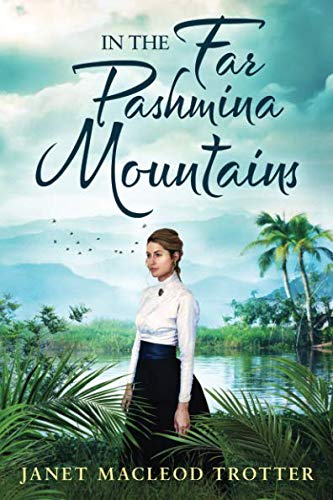In the Far Pashmina Mountains
In 1810, a North Sea storm affects two lives. Alice is born in a Northumberland lighthouse and abandoned by her mother. On the Isle of Skye, an uprooted tree kills the father of five-year-old John. Alice is brought up by the lighthouse keepers, but George, the local schoolmaster, tutors her. John learns a lot from the laird, MacAskill, and his Afghan manservant. In 1827, John is accepted by the East India Company. Sailing for London, John’s ship capsizes near the Northumberland lighthouse. Fortunately, Alice manages to rescue John and nurses him. In love, they agree to marry and travel to India. John travels first, promising to write, but Alice doesn’t receive his letters, nor he hers. Although Alice learns that she is an heiress and moves to her father’s estate, she cannot get over John. When Alice receives George’s letter from Calcutta, proposing and inviting her there, she accepts and books a passage to India. However, fate has other plans for her.
Janet Trotter has penned this lengthy saga based on her ancestors’ experiences in India, but also on her intensive research and travels, which show in the details. The earlier part of the novel set in Northumberland and on the Isle of Skye is a pleasurable read containing much information about life in the lighthouses, farming estates and so on. Similarly, the later portions of the novel, set in India and Afghanistan, are vividly presented. These will interest readers unfamiliar with those regions. The British Army’s disastrous retreat from Kabul is covered with some fictional elements added. Although coincidences abound, a certain amount of suspension of disbelief is needed. However, the masterful plotting of the storyline with its interesting characters, both heroes and villains, holds our interest to the end, which centers around the First Anglo-Afghan War.










